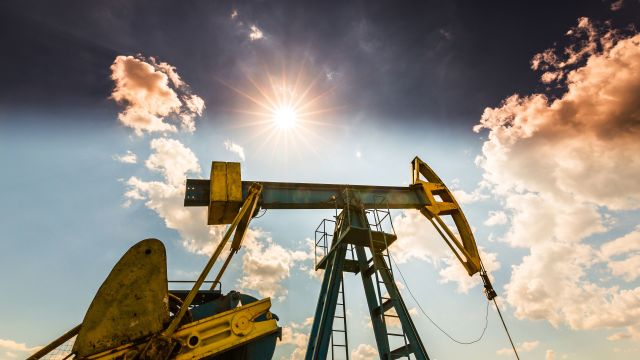Updated on March 19, 2025.
Fracking is a process used to collect the earth’s natural gas and oil. Its use has ignited controversy in political and environmental circles, but what are the facts? Is it safe for you, your family, and the environment? Or are there unintended health consequences?
The basics of fracking
Also known as “hydraulic fracturing” or “unconventional oil and gas development,” fracking is a relatively new technology. It cracks open tight-knit rock formations deep in the earth’s crust to release trapped oil and gas.
Fracking involves workers drilling holes at least a mile into the earth. They then inject these holes with water, chemicals, and sand (called “slickwater”) under high pressure. That fractures the rock, prompting it to let go of the gas and oil, otherwise known as fossil fuels. More recent advances, including horizontal drilling techniques and changes in slickwater fluid, have created enthusiasm and financial opportunities in the fracking industry.
Health effects of fracking
Fracking may come at a cost to the communities where it takes place. Its full impact on our health is unclear, as scientists continue to study its effects. Though we have clues that fracking may be harmful to humans, it may take generations to reveal just how serious fracking’s health effects will be.
The slickwater fluid used during fracking is a main area of concern. While it contains up to 97 percent water, it also includes chemicals that help to dissolve rock, kill bacteria, deliver other chemicals, and protect the steel parts of the drill. These chemicals may include methanol, ethylene glycol, propargyl alcohol, and many others. Some of these chemicals are known to be harmful. But it’s unclear as to how others could affect human health as they make their way into water supplies near the surface and deep underground.
And fracking operations do contaminate drinking water supplies, a 2016 study by the Environmental Protection Agency revealed. Contamination may be related to spills and leaks of fracking fluids, poorly built wells, and wastewater management issues.
In addition to water issues, air pollution is an area of concern. Studies show that both air and water around fracking sites can be contaminated with chemicals that may affect health. People living close to fracking sites may be exposed to these chemicals when they breathe or drink, bathe, or use water for other purposes. Wastewater and drinking water treatment plants may not filter them out.
Some evidence suggests that people exposed to contaminated drinking water or air have higher risks for:
- Childhood leukemia
- Low birth weight
- Premature births
- Premature death (linked to senior residents living downwind of fracking operations)
- Migraine headaches
- Increased asthma symptoms
- Increased stress
Communities may also feel the stressful effects of fracking operations. These processes can cause extra noise, traffic, and more strain on local resources, according to the National Institute of Environmental Health Sciences.
It’s important to remember that even though reports link higher incidences of health problems to living near fracking sites, it doesn’t necessarily mean that fracking caused the problems, notes Christopher D. Kassotis, PhD, a researcher and Assistant Professor of Environmental Health at Wayne State University in Detroit. Only more research will potentially confirm the links, he says.
What to do if you live near a fracking site
Protecting people from the effects of fracking is largely a matter of government and policy. Since regulations differ from state by state, it’s wise to learn more about how your state and local government manage fracking sites. That way, you can better understand how it may affect you and your community. Your town’s department of health will likely have information.
In the meantime, if you live close to a fracking site and have the resources, you may want to consider purchasing water filters, sound-blocking windowpanes, and indoor air filters to help reduce potential harms. Upkeep for these items can be costly, so remember to factor ongoing care into your purchase.
Also, talk to your healthcare provider about any new, sudden, or changing symptoms, perhaps by keeping a daily journal or diary. Dr. Kassotis recommends taking measures to lower your body’s exposure to chemicals in general, as well. The Environmental Working Group maintains easy-to-use lists to help find products with safer ingredients.







